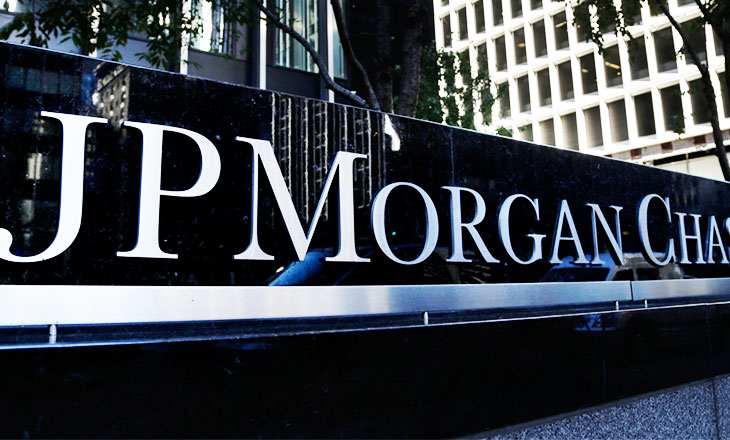The concept of a stablecoin is not new news. The fact that Jamie Dimon, the CEO and Chairman of JPMorgan Chase (NYSE:JPM), has continually bashed Bitcoin is not new news either, nor is the fact that his bank’s developers have been silently working in the background on ways to leverage blockchain technology to the bank’s benefit. What is new news is that JPMorgan Chase will be the first major bank to embrace the crypto revolution in a significant way by issuing its own proprietary stablecoin to speed up cross-border payments and gain other operating efficiencies, as well.
After calling Bitcoin a “hoax”, Jamie Dimon, the CEO of JP Morgan, may have turned his head around after all.
One of the biggest and most prominent investment banks in the world, JP Morgan has created its very own cryptocurrency called JPM. According to Bloomberg, the coin has so far been used in only one transaction – a trial one.
The coin was created by the bank for interbank transactions and for the bank’s clients. The coin will be used for cross-border transactions. Another very well known cryptocurrency is performing really well in this space, though – Ripple. The new digital currency by JP Morgan is be built on the bank’s Quorum blockchain technology. Quorum is actually a variation of Ethereum, but adjusted to meet the needs of financial giants such as JP Morgan.
JP Morgan’s coin is more stable than Ripple in any case. The JPM coin value is pegged to the US dollar. The payments that banks make should undoubtedly made in stable, not-so-volatile currencies. And while most alt coins and specially-created digital currencies boast decentralization, financial institutions are still creating their “in-house” crypto projects.
With this one move, as reported by CNBC, JPMorgan Chase, the largest American bank and major player on the international scene, is able to put a crypto feather in its cap and be a “first mover”, before any other bank could wake up and smell the coffee. The move also makes a great deal of sense for the bank, since its global cash management system encompasses 80% of the participants in the Fortune 500, and its treasury division pushes over $6 trillion a day around the world for its global clients.
Umar Farooq, the head of JPMorgan’s blockchain projects, explained the apparent need and opportunity:
So anything that currently exists in the world, as that moves onto the blockchain, this would be the payment leg for that transaction. The applications are frankly quite endless; anything where you have a distributed ledger which involves corporations or institutions can use this.
Money sloshes back and forth all over the world in a large enterprise. Is there a way to ensure that a subsidiary can represent cash on the balance sheet without having to actually wire it to the unit? That way, they can consolidate their money and probably get better rates for it. Pretty much every big corporation is our client, and most of the major banks in the world are, too. Even if this was limited to JPM clients at the institutional level, it shouldn’t hold us back.
Faroog also detailed three areas where the JPM Coin would improve current operations. First, wire transfers are an antiquated way to move funds across international borders. SWIFT is the global consortium that facilitates this current process, but it can take as many as 48 hours to complete a transaction, due to batch settlement cutoff deadlines and international time zone considerations. A blockchain transaction can be immediate and instantaneous.
The second application has to do with fulfilling debt issuance commitments. When a corporation issues debt, the bank managing the offering will wait for wire transfers to arrive and accumulate, before the delivery of funds can be made to the issuer. JPM Coin will circumvent current time delays and speed up the entire process.
Lastly, the Chase treasury management team focused on a common problem for global corporations of having to move cash about their network to perform such tasks as paying employees and suppliers. The bank currently earns $9 billon a year in revenue for these services, but it could quickly enhance the efficiency, speed, and ability of its clients to recognize “good funds” on their balance sheets locally for accounting purposes, as well as for making local payments.
JP Morgan believes that the coin can be built on other blockchain networks, other than Quorum in the near future. Reportedly, only a handful of JP Morgan’s customers will be able to use the JPM for now.
